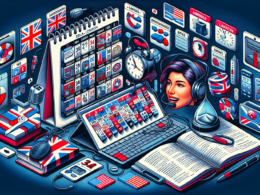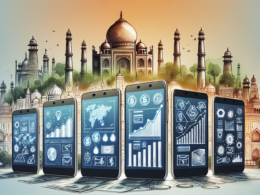In today’s fast-paced digital world, businesses are constantly looking for ways to boost efficiency and productivity. AI-powered workflow automation is transforming operations across industries by streamlining tasks, reducing errors, and saving time. Whether it’s customer service, marketing, finance, or HR, AI workflow automation can revolutionize your business.
Let’s explore 20 of the best AI workflow automation examples that can help optimize your business operations.
1. AI-Powered Email Sorting
Managing emails manually can be time-consuming. AI-powered tools like Gmail’s Smart Labels automatically categorize emails into promotions, updates, and primary inboxes, keeping your inbox organized.
2. Automated Customer Support Chatbots
AI chatbots, such as ChatGPT or Drift, handle customer inquiries 24/7, providing instant responses, answering FAQs, and resolving issues without human intervention.
3. Smart CRM Automation
Customer Relationship Management (CRM) systems like HubSpot and Salesforce use AI to analyze customer interactions, predict behavior, and automate follow-ups to boost sales.
4. AI-Based Data Entry
AI-powered optical character recognition (OCR) tools like DocuVision automate data entry from invoices, receipts, and documents, reducing errors and saving time.
5. Automated Social Media Posting
Platforms like Buffer and Hootsuite use AI to schedule and post content at optimal times, ensuring consistency and engagement across social media channels.
6. AI-Powered Lead Scoring
Sales teams use AI-driven lead scoring tools like Marketo to analyze customer interactions and prioritize high-value leads, improving conversion rates.
7. Intelligent Invoice Processing
AI automates invoice processing by extracting relevant details, verifying payments, and updating financial records in real time, reducing the risk of human errors.
8. AI-Based Meeting Scheduling
Tools like Calendly or Microsoft Booking automate meeting scheduling by analyzing availability and suggesting optimal time slots, eliminating back-and-forth emails.
9. Smart Document Management
AI-driven document management systems like Google Drive and Dropbox use AI to organize files, suggest recommended documents, and automate version control.
10. AI-Powered Fraud Detection
Financial institutions use AI algorithms to detect fraudulent transactions by analyzing patterns, identifying anomalies, and preventing potential security breaches.
11. Automated HR Recruitment Processes
AI recruitment tools like HireVue and Pymetrics analyze resumes, conduct video interviews, and assess candidates, speeding up the hiring process.
12. AI-Driven Sentiment Analysis
AI sentiment analysis tools monitor customer feedback, reviews, and social media conversations to help businesses understand customer satisfaction and refine strategies.
13. Automated Project Management
AI-powered tools like Asana and Monday.com automate task assignments, track project progress, and suggest deadlines based on team performance.
14. AI-Powered Personalization in Marketing
Marketing automation platforms like Adobe Sensei and Persado use AI to create personalized email campaigns, product recommendations, and targeted ads.
15. AI Chatbots for Internal Support
AI chatbots streamline internal IT and HR requests by answering common queries, automating password resets, and providing real-time support for employees.
16. Predictive Analytics for Sales Forecasting
Businesses use AI-driven predictive analytics tools like Tableau and IBM Watson to forecast sales trends, optimize inventory, and make data-driven decisions.
17. Automated Contract Review
Legal teams leverage AI-powered tools like Kira Systems to analyze and review contracts, identify key clauses, and flag potential risks.
18. AI-Based Voice Assistants for Workflows
Voice assistants like Amazon Alexa for Business and Google Assistant automate office tasks, set reminders, and retrieve critical business information.
19. AI-Powered Call Transcription
Call centers use AI tools like Otter.ai to transcribe customer calls, analyze conversations, and generate insights to improve customer service.
20. Automated Employee Onboarding
HR departments use AI to automate the onboarding process, from document submission to training schedules, ensuring a seamless transition for new hires.
Conclusion
AI workflow automation is transforming the way businesses operate by reducing manual tasks, improving efficiency, and increasing productivity. Whether you’re looking to enhance customer experience, optimize HR processes, or drive better marketing results, AI can help.
Are you ready to automate your processes and take your business to the next level? Start exploring AI-powered tools today and stay ahead of the competition!









